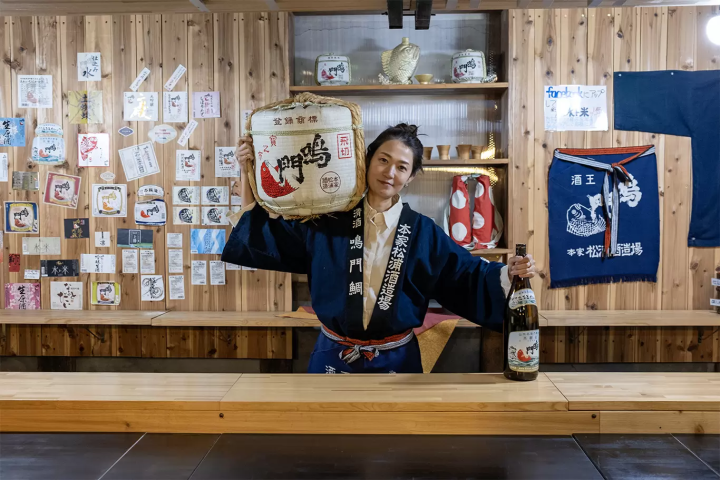9 Convenient Japanese Phrases To Use At A Ramen Restaurant

You will probably want to try ramen or tsukemen at least once on your trip to Japan. Use these convenient phrases at restaurants to order your noodle dish just the way you would like to eat it!
Fully Enjoy your Delicious Ramen and Tsukemen
Ramen is one of the most popular comfort foods to try when traveling in Japan. Tsukemen, a ramen dish where the noodles and the soup are served separately, is also gaining in popularity in recent years.
In this article, we’ll introduce you to some convenient phrases you can use at ramen restaurants. Practice these phrases to enjoy delicious ramen or tsukemen to the fullest.
Read also
First, Place Your Order!
The first thing you need to do when entering the restaurant is to place your order. This can be done by either buying a ticket from the vending machine or consulting the menu at your seat and telling your order to the staff.
The vending machine is generally by the entrance. If you can’t find it, you can ask the staff. Please remember that different restaurants have different ways to order.
1. “O-susume wa nan desu ka?”
[osusumewa nandeska]
“What do you recommend?”
When you go to a restaurant for the first time, you might be wondering what ramen might be the best. Use this phrase to ask the staff for a recommendation.
2. “Kore wa, donna aji desu ka?”
[korewa donna ajideska]
“What flavor is this?”
Ramen has various flavors such as soy sauce, salt and pork bone broth. If you are not sure about the flavor, you can use this phrase to ask.
3. “Katasa wa dou shimasu ka?” “Katame / futsu / yawarakame.”
Depending on the ramen restaurant, you may be asked how firm you want your noodles to be. Answer according to your preference.
Noodle firmness
Katame [katame] is “firm,” futsu [futsu:] is “standard,” and yawarakame is “soft.”
Example
“Katasa wa dou shimasu ka?”
[katasawa do:shimaska]
“Futsu de onegaishimasu.”
[futsu:de onegaishimas]
“How firm do you want your noodles?”
“Standard, please.”
4. “Kosa wa dou shimasu ka?” “Koime / futsu / usume.”
Just like the noodles, depending on the restaurant, you may be asked about how concentrated you want your ramen broth to be.
Example
Koime [koime] is “strong,” futsu [futsu:] is “standard,” and usume [usume] is “diluted.”
Example
“Kosa wa dou shimasu ka?”
“Koime de onegaishimasu.”
[kosawa do:shimaska]
[koimede onegaishimas]
“How do you want your soup?”
“Strong, please.”
5. “〇〇 o toppingu shite kudasai.”
[〇〇 o toppingu shitekudasai]
Fill in the 〇〇 with the toppings you’d like to add to your order. Many ramen restaurants offer extra toppings for an additional charge. Here are some of the most common toppings.
Chasshu [cha:shu:] are barbecued glazed pork slices.
Menma [menma] are steamed bamboo shoots, pickled in salt and fermented.
Nori [nori] are sheets of dried seaweed.
Negi [negi] are chopped green onions, a condiment characteristic for scent and spice.
Ajitama [ajitama] are seasoned hard boiled eggs.
Example
“Negi o toppingu shite kudasai.”
[negio toppingu shitekudasai]
“Top it with onions, please.”
“Chasshu o toppingu shite kudasai.”
[cha:shu:o toppingu shitekudasai]
“Top it with chasshu, please.”
6. “O-mori (sukuname) ni dekimasu ka?”
Use this phrase when you want a larger or smaller serving of noodles.
[o:morini dekimaska]
“Could you give me more noodles?”
[sukunameni dekimaska]
“Could you give me fewer noodles?”
7. “Atsumori de onegaishimasu.”
[atsumoride onegaishimas]
“Hot noodles, please.”
Use this phrase when you order tsukemen. After tsukemen noodles are cooked, they are often rinsed with cold water to firm them up, and then served cold. If you want to eat the noodles hot, use this phrase. The staff will run the firm noodles through hot water to warm them up.
Enjoy Ramen and Tsukemen Even More
8. “Kaedama onegaishimasu.”
[kaedama onegaishimas]
“Another serving of noodles, please.”
Some ramen restaurants offer kaedama, which lets you order extra noodles after you’ve finished your first serving. Kaedama can be free or cost an additional fee, depending on the restaurant. Please ask the staff.
9. “Soup wari kudasai.”
[su:puwari kudasai]
“Soup wari, please.”
Use this phrase after you’ve ordered tsukemen. Tsukemen broth is very concentrated to better adhere to the noodles when you eat them. After you’ve finished the noodles, soup wari (diluting the broth) will let you enjoy the remaining broth as soup. Depending on the restaurant, the soup wari liquid may be in a kettle, or you may have to ask an employee to do it for you. Ask the staff if you are not sure.
Review
Can you remember what each phrase means?
1. “O-susume wa nan desu ka?”
[osusumewa nandeska]
2. “Kore wa donna aji desu ka?”
[korewa donna ajideska]
3. “Katasa wa dou shimasu ka?” “Katame (futsu / yawarakame).”
[katame/futsu:/yawarakame]
4. “Kosa wa dou shimasu ka?” “Koime (futsu / usume).”
[koime/futsu:/usume]
5. “Negi o toppingu shite kudasai.”
[negio toppingu shitekudasai]
6. “O-mori ni dekimasu ka?”
[o:morini dekimaska]
7. “Atsumori de onegaishimasu.”
[atsumoride onegaishimas]
8. “Kaedama onegaishimasu.”
[kaedama onegaishimas]
9. “Soup wari kudasai.”
[su:puwari kudasai]
Did you remember everything? When you visit Japan, order ramen or tsukemen just the way you like it with these useful phrases!
Read also
MATCHA編集・ライターのインターン生。カフェ・レストラン巡りと映画鑑賞が大好きな大学生。









































![[ Naruto City, Tokushima Prefecture ] Experience the world's largest whirlpools up close on a sightseeing boat at the Spring Whirlpool Festival!](https://resources.matcha-jp.com/resize/720x2000/2025/02/05-222727.webp)
![[Niigata] Skiing and snowboarding are just not enough! Fun snow spots for parents and children](https://resources.matcha-jp.com/resize/720x2000/2026/01/29-256901.webp)


![[Gunma, Nakanojo] Experience Japanese history in a wooden school building from the Meiji era](https://resources.matcha-jp.com/resize/720x2000/2025/12/25-254022.webp)